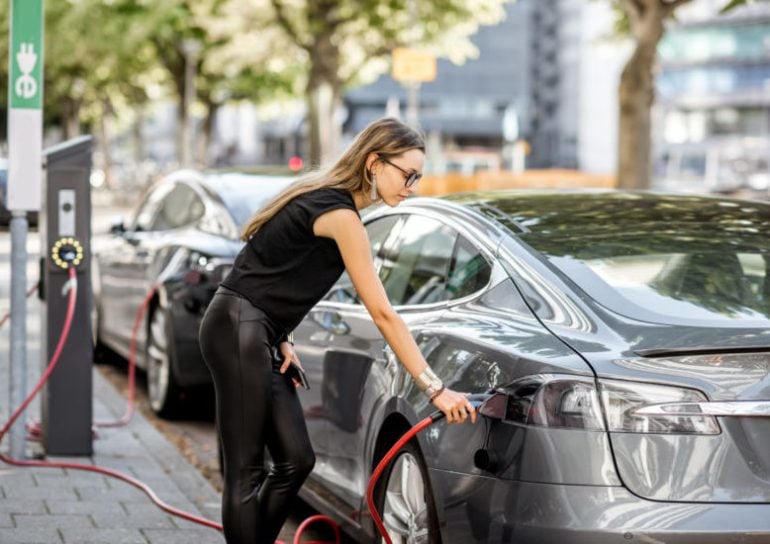Victoria’s electric vehicle road use tax is dead, killed off by a legal challenge to the High Court of Australia.
A majority 4-3 decision by the full bench of the High Court ruled the law was unconstitutional in a decision that could hit state-based consumption taxes more broadly.
The High Court ruled that Victoria’s EV levy amounts to an excise, and only the Commonwealth has the constitutional authority to to do that.
The Victorian government introduced the Zero and Low Emission Vehicles (ZLEV) Act in 2021, as the nation’s first distance-based road charge for EVs, hydrogen-fuelled and plug-in hybrid cars. Owners had to pay 2.8c km, or 2.3c for plug-in hybrids.
There were draconian aspects to its implementation that last month were slammed by the Victorian Ombudsman. Motorists who failed to send annual photographs of their car’s odometer to the government, or submitted them late, were hit with a bill for driving 13,500km or unkowingly had their registration suspended or cancelled.
Victorian EV owners Chris Vanderstock and Kath Davies clallenged the tax in the High Court arguing in was an excise, in breach of the Constitution, which says the federal government alone has the power “to impose duties of customs and of excise”
Chief Justice,Susan Kiefel, and three others agreed, with three justices dissenting.
Solictors-general for all the states and territories, as well as the Commonwealth appeared before the court. The High Court ruling not only kills off the tax, it will also impact plans for similar charges in other states.
It’s the second major smackdown for the EV tax in a month, after Victorian Ombudsman Deborah Glass declared the charge ‘unreasonable and inflexible’ following an investigation into the Victorian Department of Transport and Planning’s implementation of the charge, which outlined out it was double taxing many road user.
While Victorian EV users are thrilled and will no longer have to pay the tax, justices Michelle Gordon, James Edelman and Simon Steward sounded an alarm in a dissenting ruling calling the majority decision an “abandonment of past authority” and contradicts previous rulings on some taxes on good not being an excise, in breach of the Constitution.
Justice Gordon cited the Victoria submission that multiple charges could now face similar challenges for the same reason – from stamp duties to poker machine and waste levies to vehicle registration.
National implications
Swinburne Professor of Future Urban Mobility Hussein Dia said the decision will have broad ramifications, but was a win for the environment.
“The ruling means that Victoria’s electric vehicle tax is invalid and unconstitutional and sets a precedent that will likely prevent other states from implementing similar legislation,” he said.
“Importantly, the ruling is a win for national efforts in decarbonising road transport and encouraging the uptake of electric vehicles.
“Victoria has been moving in the wrong direction on electric vehicle policy, and this shows that its policies were hastily put together and are inconsistent with the constitution. It will be interesting to see how this tension will unfold and who gets to impose such road user charges in the future.”
Associate Professor Yan Xu from the UNSW Business School called the decision is disappointing.
“The ramifications can be significant as other states and territories may not be able to proceed with their initiatives on road charges in view of the decision,” While charging users on use of roads looks like a right thing to do for states from a fiscal perspective. It becomes complicated from an environmental perspective. The court decision may put Australia further behind its counterparts and other countries as many have done so (charging use of roads).”
NSW Treasurer Daniel Mookhey said: “The NSW Government will study today’s High Court decision. The implications need to be carefully considered. The transition to net zero is only possible if the rules are applied fairly and are seen to be fair.”




















Trending
Daily startup news and insights, delivered to your inbox.